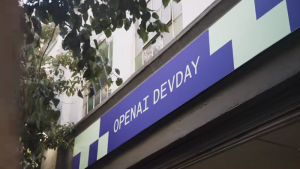NetApp CEO Tom Georgens has a Plan to Outpace EMC: Can the Momentum Continue?
Tom Georgens is one of the leading execs in the storage industry. As the CEO of NetApp and former executive at Engenio and EMC he has a deep perspective on the storage business. My partner John Furrier and I interviewed Tom on The Cube last year at VMworld 2010 where he proved to be one of our best guests of the week.
One of my favorite clips from that discussion was Georgens responding to my question as to how is it that NetApp is able to consistently outpace industry growth. Georgens’ answer was that we don’t target a growth number, our goal is to gain share.
Watch live video from SiliconANGLE.com on Justin.tv
At yesterday’s NetApp analyst event, Tom talked about how NetApp’s share gain and consequent growth is being fueled by product innovation and channel diversity. It was interesting to contrast this messaging with the remarks of EMC’s CEO Joe Tucci at the recent EMC World. Tucci’s rap centered on cloud meets big data…hybrid clouds in particular and the secure movement of data in and out of the cloud. Tucci also described EMC’s highly diverse portfolio and the advantages of such an approach in the marketplace.
Meanwhile, Georgens stressed product innovation, competitive differentiation and diversity of channels – OEM, tiered distribution and SI partners. EMC’s messaging challenge is to boil a diverse porftolio into something simple—“Cloud Meets Big Data” does that – the question is will customers buy? NetApp on the other hand has a different challenge – how to be perceived as relevant – consistent financial execution and growth is the answer to that dilemma.
EMC and NetApp are like republicans and democrats. They know the “inside baseball,” they have resources, strong brands, good distribution, great messaging, etc., but they have fundamental differences in philosophies. EMC is a portfolio company with a direct sales DNA and assets that are very diverse from mainframe and midrange storage, entry-level systems, virtualization, security, database, backup hardware and software, document management and a large services business. NetApp on the other hand is much more of a pure-play storage product player with essentially a single architecture (notwithstanding the recent Engenio acquisition) sold primarily through distribution channels with no real professional services business.
With an almost $60B+ market value, EMC is the smallest of the big and competes with the likes of IBM, Oracle and HP. NetApp is just big enough to be almost “acquisition-proof” but at ~$5B in revenue with a $20B market value, not quite a whale yet.
Georgens Angle
Georgens is a very clear thinker and always puts forth a compelling argument for why his company will win…here are some random notes I took that I think are worth sharing. They underscore Georgens’ strategy and NetApp’s competitive position. Georgens showed growth charts and obviously NetApp looked great with its strong CAGR over the past five years. There’s little question that NetApp is the growth gold standard in the storage business and if it continues to execute, observers should expect a $10B company with a $40B market value by 2014.
These are not direct quotes but a pretty close paraphrase of what Georgens said (with some commentary added by me).
- NetApp is outpacing all competitors in growth. The market according to the analysts is growing at 6-9% and NetApp has much higher aspirations.
- If it weren’t for the Data Domain acquisition, EMC’s growth rate would be cut in half.
- Why is NetApp’s stock doing so well? A big reason is that there is a shortage of growth companies that have scale. Georgens listed five:
- Apple, Google, Amazon, eBay and NetApp
Note: I asked Georgens why VMware didn’t make the list at a run rate of $3B and a 30-40% growth rate. He said his criteria was equal in size or larger than NetApp but the premise of his point was there’s an undersupply of growth stocks in tech with critical mass – clearly VMware makes that elite list and Citrix is getting close.
- There is no dominant vendor from a market share standpoint (EMC is in the 30% range; NetApp is in the mid-teens). Georgens’ premise is NetApp has tons of upside (of course so does EMC). But NetApp is growing faster than EMC, especially its organic core storage growth. As well, the market is discounting EMC’s storage value because of VMware.
- “When you have no market share, macroeconomics don’t matter.”
- If NetApp can gain 1.5 points of market share annually it can sustain a 20% growth rate—implication is NetApp can double its current business organically. On paper that would put NetApp at $10B with a $40B market value.
- There are two ways to stay independent: 1) Become a really unattractive business or 2) Be too expensive to buy with cash. When NetApp had a $4B valuation a cash transaction would have been easy – but today, at $20B it’s too expensive and requires a stock swap. Less attractive for buyers. But (Georgens half-joked) if IBM came in at $100B then it would be in the hands of the shareholders.
- NetApp’s framework for growth:
- Establish indisputable leadership and innovation – i.e. add value to customers
- Build go to market breadth to become a growth company of scale
- Exploit competitive advantage that’s sustainable
- Culture, culture, culture
- “NetApp is the innovation leader for storage in virtualized infrastructure.”
- Server companies are challenged to compete in storage – no one buys storage from server companies unless they’re buying servers– which limits the potential R&D impact of server vendors.
- Server vendors won’t compete on innovation; they will compete on systems integration.
-
- The very low end is a server-attached business – hard for an independent to compete.
This is where the Engenio acquisition comes in. Engenio sells OEM to server vendors. Server vendors don’t want to waste resources doing R&D for entry-level storage but they also don’t want to buy from a competitor. If they do pop out Engenio it stretches server vendor storage R&D even thinner. Meanwhile – NetApp can gear up to take Engenio through its channels (i.e. compete with it’s OEMs). Georgens is expanding his opportunity and the industry hasn’t overlooked the fact that there’s an admission that ONTAP is not “one-size-fits-all.” In addition to ONTAP there’s now Bycast, Engenio and Quantum StorNext – a clear indication of an attempt to expand into unserved markets.
- Customers feel that Oracle is a monopoly and fear giving too much non-database business to Oracle. “We’ll let EMC go after Oracle’s core business…we want to grab the surrounding infrastructure” (e.g. data protection).
- “Virtually every EMC announcement in the past year…” has been a copycat of NetApp. See what I mean about republicans and democrats – they both want to take credit for good ideas.
- Channels are one secret to NetApp’s recent successes. Why didn’t EMC become the Cisco of storage with 70% market share? According to Georgens it’s because storage is far more fragmented than networking with much more diverse channels (e.g. OEM).
- Arrow and Avnet accounted for 31% of NetApp revenue ($1.7B) last year.
- 75% of NetApp’s sales were through indirect channels last year.
- Channel partnering is not EMC’s strength.
- With it’s 800 people, VCE is competitive to SIs (I think the # is 900 Tom).
- “The channel is suspicious of EMC.”
I found this to be the weakest part of Georgen’s attempts to de-position EMC. EMC has done a very good job in the channel (as has NetApp). It understands the importance of channel from the very top. I’ve also found that SIs are loving VCE. We’ve had CSC, Accenture and several other SIs on the Cube and they’ve consistently indicated they get value from Vblock. But I think it’s a smart move by Georgens to call this into question and force EMC to defend its position.
- “Teradata (through Engenio) will bring more opportunity for NetApp than Greenplum will for EMC. Maybe so – but Teradata has a lot of unhappy customers because the company is taking a page from Oracle by extracting rent from customers—and Oracle has a much stronger market position than Teradata.
- “We’ve become so dependent on our systems that we can only move at the speed of IT.”
- “We have better IT at home than at work.”
These last points spell opportunity to me. Georgens is keying on the consumerization of IT, the drive toward simplicity and the need for agility. These trends favor NetApp. It doesn’t have to force-fit its products to respond to these trends – the whole premise behind NetApp is simplicity. While smaller players (e.g. Avere) can pick at NetApp and fill some holes and large vendors can lick their chops at NetApp and try to compete on integration…the fact is the company is crushing it in the marketplace because it has great products and great people that are partner-friendly.
The bottom line to me is we’re seeing NetApp leave adolescence and enter young adulthood. NetApp is becoming a company that no one gets fired for buying…and that means more growth ahead.
Cross-posted at Wikibon Blog]
A message from John Furrier, co-founder of SiliconANGLE:
Your vote of support is important to us and it helps us keep the content FREE.
One click below supports our mission to provide free, deep, and relevant content.
Join our community on YouTube
Join the community that includes more than 15,000 #CubeAlumni experts, including Amazon.com CEO Andy Jassy, Dell Technologies founder and CEO Michael Dell, Intel CEO Pat Gelsinger, and many more luminaries and experts.
THANK YOU













